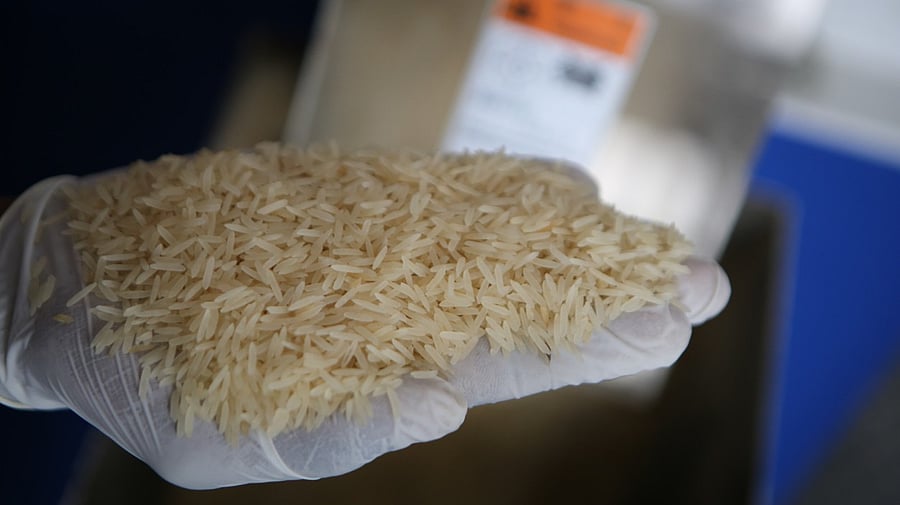
Image showing a gloved hand holding rice. For representational purposes.
Credit: IStock Photo
Bengaluru: Nearly 700 persons have signed a petition by Coalition for GM-Free India urging Union Agriculture Minister Shivraj Singh Chauhan not to not to release untested and unsafe gene-edited rice and bring a rigorous regulation for such technology.
The Coalition, a platform of hundreds of public-spirited organisations and individuals working on issues related to agriculture, health, biodiversity and other matters, was referring to the release of two gene-edited rice varieties unveiled by the minister recently. It said the minister has been "misled" by a 'scientific community' that for decades has sought to promote transgenic crops, ignoring the scientific literature.
"There is large and ever-growing number of scientific evidence showing that gene editing is not precise but gives rise to numerous genetic changes, also known as unintended mutations both at the targeted site and off-site," it said, the mutation can eventually lead to production of proteins with unknown consequences to the health of consumers and to the environment.
They said the CRISPR technology, used in the two gene-edited varieties, has irreversible risks. Referring to the gene-editing technique, they said it was important to note that deregulated techniques of gene editing (SDN-1 and SDN-2) also involve foreign material being used and unintentionally implanted in the host organism even where the intention is not to introduce alien genes," it said.
Further, they also spoke about intellectual property rights (IPR), echoing concerns of agricultural scientists who wrote to the PMO recently. "The Government of India has not revealed the situation with regard to IPRs of the announced varieties. While Board Institute has been mentioned in news articles, this Institute Has patents on the technology in the USA which are under litigation," it said.
Besides threatening India's rice export market, the gene-edited rice varieties also pose a risk to the diverse gene pool of local rice varieties, they said. "We urge you to ensure that the planned release of Kamala (DSR Dhan 100), Pusa DST Rice 1 and gene-edited sheep is withdrawn immediately, and share all related data in the public domain," said Kavitha Kuruganti and Rajesh Krishnan, co-convenors of the Coalition, adding that all gene editing in agriculture and animals should remain under strict regulations.